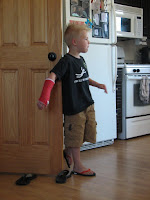Dealing with Difficult ASD-related Behavior: Critical Tips for Parents

"I need some advice on how to handle behavior problems in my child with ASD, such as how to use the right discipline, dealing with his obsessions, sibling issues, sleep problems, school-related problems, and acting-out behavior in public. Thanks!" Disciplining kids displaying ASD-related behavior will often require an approach which is somewhat unique to that of "typical" kids. Finding the balance between understanding the needs of a youngster with ASD - and discipline which is age appropriate and situationally necessary - is achievable when applying some simple, yet effective strategies. These strategies can be implemented both at home and in more public settings. General Behavior Problems— Traditional discipline may fail to produce the desired results for kids with ASD level 1 ("high-functioning autism"), primarily because they are unable to appreciate the consequences of their actions. Consequently, punitive measures are apt to exacerbate the type of


